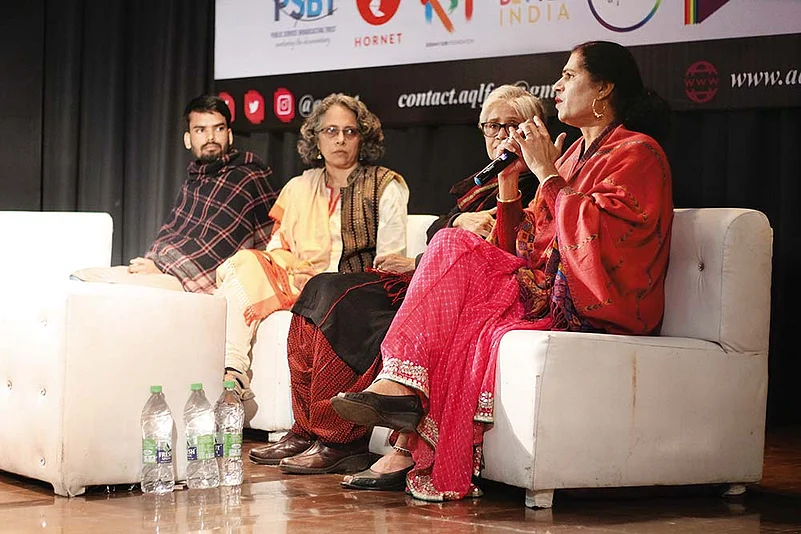In July 2009, Delhi High Court decriminalized section 377 and said it was violative of Articles 21, 14, and 15 of the Constitution. This not only secured the right to existence, but existence with dignity, liberty and life. In the same year, Simmi, a transgender beautician took the bold step to start a beauty parlour for trans-person and gay men in Faridabad. The Pahal Beauty Parlour is unique as it not only caters to the needs of the community in free and non-stigmatized environment, but uses it to spread awareness on human rights, health and life free of discrimination.
Simmi says, “I never thought that this dream of mine will become a reality. I want to convey that no matter what your gender identity is, if you are determined, no one can stop you. Today, my parlour employs 10 transgender persons, and we have started to get appointments from the mainstream society. Before 2009, I was scared to reveal my identity. But now I am empowered to be what I am.”
In February 2019, Lucknow witnessed its first ‘Awadh Queer Literature Festival’ – an exclusive event for LGBTIQ+. The city had earlier seen the worst form of homophobia, which led to the PIL against 377. The festival became a turning point in the queer movement. It encouraged the members from smaller towns to come forward, participate, and make their voices heard. They came from Gonda, Faizabad, Allahabad, Varanasi, Barabanki, and Sitapur. The festival witnessed book launches, exploring identities such as being Dalit and queer, issues related to lesbians and bisexual women in rural India, and life of a transgender person in smaller towns. Film screening, performances and poetry were also included. It established the fact that if the movement has to succeed, it needs to go beyond Delhi and Mumbai.


























